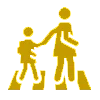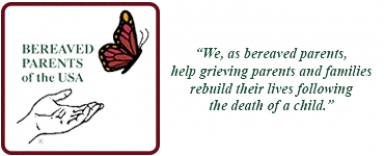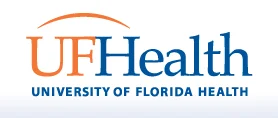Florida Local Accident Resources
Florida Local Accident Resources
Was Your Loved One Involved in a Fatal Car Accident in Florida Today?
Resources for Loss & Grieving
General
For Parents
Grief and Loss Support
For Children
Children and teenagers usually process grief in their own way. They may deny that their family member has passed away, refuse to acknowledge the situation express their feelings, or they may revert back to problematic behavior patterns that they presented when they were younger.
Children who are grieving the loss of someone they love must be given special attention. Here are a few resources that family members may introduce to a child to assist them throughout the grieving process.
- National Alliance For Children’s Grief
- Dougy Center
- Camp Erin of the Central Valley
- Our House Grief Support Center
If the unanticipated loss of someone you love was due to the recklessness or negligence of another person, a wrongful death lawyer can help to bring closure and get you the compensation and justice you deserve. While no one wants to deal with legal proceedings while grieving, it is often a necessary part of the process for your family to avoid severe financial strain.
Grief Information & Support
When we lose a loved one, we naturally feel grief. Grieving someone is the result of loving them, so grief and love are ultimately inseparable. Mourning is an innate response and has always been part of the human condition. Even though it hurts, it can also be looked at as an expression of how much we love the person who passed away.
In the days and weeks following your loved one’s death, you will undoubtedly experience difficult emotions. It may feel as if you are unable to move forward or function properly, which is completely normal. Often, grieving families will take time away from their regular lives to process their loss as they begin to move through the five stages of grief. Though not everyone experiences grief in the same way, the five stages were defined by Elisabeth Kübler-Ross to help anyone experiencing profound loss in their life define what they are going through and make sense of it in some way. The five stages of grief are:
- Denial: When you first learn of your loved one’s passing, you may be in shock and unable to process what has happened. Your brain will try to convince you it isn’t happening as a defense mechanism.
- Anger: Losing someone you love may result in feelings of anger toward yourself, the world, or, if your loved one’s passing was wrongful, the person who caused their passing.
- Bargaining: This stage includes mentally negotiating with yourself, others, or even a higher power to attempt to change what happened to your loved one. This stage is an example of our rational mind taking a back seat as our emotional mind takes over.
- Depression: Feelings of hopelessness, heavy sadness, or a desire to isolate may be part of the depression stage of grief.
- Acceptance: Your emotions may begin to stabilize when you start to accept your loss. You may feel as if you have re-entered reality, as if a fog has lifted, or you may be ready to start engaging in hobbies and activities again.
Learning about these stages may help to comfort you to know that what you are experiencing is a common part of grieving for some people and that you are never alone in your journey.
Growing Around Grief
According to the five stages of grief, there is a general order and timeline associated with how individuals will likely move through the grieving process. Because these five stages were developed in the late ’60s, other experts have since come up with ideas that may better suit those who do not identify as closely with the five stages. One of these is called “Growing Around Grief.” This model was developed in the late 90s by Lois Tonkin, and suggests that even if the painful feelings do not ever cease, you will still be able to eventually achieve enjoyment through new life experiences, meeting others, building new relationships, and pursuing new activities.
Tonkin, a grief counselor, explained this model by describing a meeting she had with a woman who had lost her child. The woman explained her experience of loss by saying that, at the start, it was filling up every part of her life. She drew a picture of a circle to represent her life and shading to represent her grief. The shading consumed the entire circle at first. Her initial thought was that, as time went on, her grief would shrink and consume less space in her life. But what happened was different: the grief never shrank; her life just grew around it. Sometimes, she felt the grief as fiercely as she had when she first lost her child, but other times she felt she was living her life in the space outside of the shading, and, as time went on, she had more space and opportunity to move around outside of the grief.
This model may help you to have hope for the future, that, eventually, you will be able to move on with other parts of your life while still grieving the loved one you have lost. Essentially, you will still have the opportunity to grow despite the profound loss you have experienced.
What is a Wrongful Death?
A wrongful death happens when someone’s life is prematurely ended by the negligent actions of another person. In order to successfully obtain compensation via a wrongful death lawsuit, the death must also result in some form of financial difficulty for the surviving loved ones of the deceased person. If you are facing financial hardship due to the untimely passing of your loved one that happened due to the actions of another person, you are likely suffering the consequences of a wrongful death and have the right to pursue legal action.
Unlike criminal charges, a wrongful death claim will not result in jailtime for the defendant. Wrongful death claims are meant to compensate the family of the decedent for their losses and damages.
Four conditions must be met for a wrongful death claim, which include:
- The death was caused wholly or partially by the defendant, or at-fault party
- The defendant is negligent or strictly liable for the victim’s death
- The deceased person has surviving family members
- There is monetary damage associated with the death
If those conditions fail to be met, a wrongful death suit may not be advisable. Ask one of our wrongful death lawyers if you have a case by reaching out to us today.
What Constitutes a Wrongful Death in Florida?
Typically, beneficiaries, heirs, or survivors of the deceased individual can file a wrongful death claim. Though limitations exist, generally there will be at least one available party allowed by law to file the claim. For a successful claim, you will need to establish the following elements:
- You must be able to prove that the individual who caused the fatality, known as the defendant, owed your loved one a duty of care to act safely and responsibly but failed to do so. For example, drivers owe one another a duty of care to operate their vehicles while considering the safety and well-being of others. When they choose to act negligently and cause an accident that ends in injuries or death, the victims or the surviving family members of a deceased victim are eligible to file personal injury claims or wrongful death claims.
- Next, it must be proven that the defendant breached the duty of care that they owed to your family member through a negligent act or omission, such as running a stop sign.
- You must prove that the at-fault party ultimately caused your loved one’s death by breaching the duty of care that was owed. You will need to be able to correlate the defendant’s actions with the resulting death.
- The passing of your family member must have resulted in specific, measurable damages which can be evidenced through financial records, funeral bills, and other relevant documents.
Who Can File a Florida Wrongful Death Claim?
When a person loses their life in Florida, their “estate” is left behind, which is everything they owned before their death occurred. This estate is left to their beneficiaries via a will or as determined by the state of Florida. Florida Statutes § 768.20 states that the personal estate representative is eligible to file a wrongful death lawsuit on behalf of any of the beneficiaries of the estate. However, damages are limited under this category. Sometimes, the deceased individual named an individual or people to represent their estate through estate planning before their passing. Other times, a personal representative of the estate will be appointed by the probate court.
All survivors of the decedent must be listed by the personal representative when filing a wrongful death claim. Under Florida Statutes § 768.18, the following are considered “survivors:”
- The decedent’s spouse
- The children of the deceased individual (children younger than 25 are entitled to higher damages)
- The parents of the decedent
- Blood relatives who were wholly or partially financially dependent on the decedent, including adoptive brothers or sisters.
How Much is a Florida Wrongful Death Lawsuit Worth?
Usually, families file wrongful death claims for two reasons: to provide much-needed financial support and to seek justice for the wrongful passing of someone they love. Due to the circumstances of each case being unique, there is no specific way to figure out the average worth of a wrongful death lawsuit.
If you believe that you would benefit from an educated estimation of the worth of your wrongful death lawsuit, it is vital to speak with a skilled lawyer. An attorney can assess the specifics of the case, perform necessary investigations, establish the types of damages available, and offer the wisest course of action to gather full and fair financial compensation.
What Damages are Available in a Wrongful Death Lawsuit in Florida?
In Florida, wrongful death damages available to surviving loved ones are explained in Florida Wrongful Death Statute section 768.21.
Psychological Pain and Suffering
Distinctive surviving members of the decedent’s family may recover damages concerning the pain and suffering that resulted from the passing of the decedent. Not every family member can recover damages for pain and suffering. A spouse and child under 25 are usually the only ones able to be compensated for this.
However, a child over 25 can gather damages for pain and suffering if the decedent does not have a surviving spouse. The deceased person’s parents can recover damages for pain and suffering if there are no minor children or surviving spouses.
Parents cannot recover damages for pain and suffering if their child who passed away was older than 25 at the time of their passing unless there are no other survivors.
Medical expenses as well as funeral costs resulting from the passing of the deceased person can be recovered by the survivor who incurred those costs.
Loss of Protection and Companionship
Some relatives may gather compensation for the loss of support, guidance, cooperation, and instruction. A surviving minor child and spouse can recover loss of protection and companionship damages.
If the decedent does not have a surviving spouse, an adult child can recover damages of this nature.
Loss of Services and Support
Every surviving member of the family may recover the past and future endowments of the victim. These include property, physical labor, and money. For instance, a spouse who has been left behind may recover the worth of childcare services contributed by the deceased person and those that would have been contributed if their untimely death had not occurred.
Under Florida law, a child can recover for lost services and support from the time the deceased person was hurt to the time of their passing, as well as future loss of financial support. If no surviving spouse is left by the decedent, children of any age can recover damages for the loss of parental companionship and guidance, as well as emotional pain and suffering, unless the wrongful death was due to medical negligence.
Medical Bills and Funeral Expenses
A family member or estate representative who paid for the medical care costs and funeral expenses of the victim may be able to recover compensation for these expenses.
Damages That Can Be Claimed by the Estate
The following damages may be claimed by the estate:
Lost Wages
The estate may recover future lost wages of the decedent. Future lost wages include, for instance, benefits from a pension that may have been earned by the deceased person.
Lost Accumulation of Value of the Estate
The estate may be eligible to gather compensation for the worth of income or investments that may have been gathered if the victim was still alive.
Wrongful Death Statute of Limitations in Florida
Under Florida Statute 95.11 (4)(d), the statute of limitations for wrongful death is two years from the date of your loved one’s passing. If you file a claim outside of this time limit, you may no longer be legally eligible to recover financial compensation.
Why File a Wrongful Death Claim?
There are two main reasons you should file a wrongful death claim:
- A wrongful death claim can provide you and your family members, assuming you were financially depended on the deceased person, with monetary compensation that can help you meet your essential needs and cover expenses related to the loss.
- Wrongful death claims hold at-fault parties responsible for their negligent actions that ultimately caused the death of your family member, and are meant to discourage the same type of dangerous behavior from happening again.
Need assistance acquiring a copy of the police report?
Getting a copy of the police report after losing someone wrongfully can help you prove that negligence led to the passing of your loved one when the time comes to file a wrongful death lawsuit. If someone dear to you suffered fatal injuries in a crash and you have not gotten a copy of the police report we can help you retrieve a free copy of your accident report.
Help with Financial Troubles
If you are facing financial hardship due to the wrongful death of your family member, the surest way to recover financially is to file a wrongful death claim with a skilled lawyer. Often, the process of filing a wrongful death claim can be lengthy, and sometimes even take a year or more to be completed. If your case requires the complete litigation process, it will most likely be at least one year before you see a financial resolution. While you wait, some other financial assistance options are available to help you and your family. Some of these include:
- Social Security Benefits: If your loved one worked and paid into Social Security, you may be eligible to collect Social Security survivor benefits from the Social Security Administration. Please refer to this PDF booklet on how the SSA can help you when you have lost a loved one.
- CVRC: The Crime Victims’ Reparation Commission can help you collect financial compensation that can get you through the often difficult time immediately following the death of a loved one. You can get help paying for medical bills, funeral bills, counseling, and more.
- Life Insurance Policies: Check if your loved one had a life insurance policy that may be able to help you financially after they have passed away.
- Employer Assistance: Ask your family member’s employer if financial support is offered through programs created to help the surviving families of their deceased employees. This may include life insurance benefits, survivor benefits, and more.
- Crowdfunding: Consider creating a GoFundMe campaign to get help from friends, family, and the community.
- Nonprofit Organizations: Some nonprofits and charities may offer financial support to families impacted by the wrongful passing of a loved one. Try local or national organizations built to help those who have been victimized by crime, such as the National Organization for Victim Assistance.
- Community Assistance Programs: Religious institutions, local community organizations, or community service programs may offer help to families who have been victimized by wrongful death.
Florida Grief & Trauma Resources
Resources by State
- Alabama
- Alaska
- Arizona
- Arkansas
- California
- Colorado
- Connecticut
- Delaware
- Florida
- Georgia
- Hawaii
- Idaho
- Illinois
- Indiana
- Iowa
- Kansas
- Kentucky
- Louisiana
- Maine
- Maryland
- Massachusetts
- Michigan
- Minnesota
- Mississippi
- Missouri
- Montana
- Nebraska
- Nevada
- New Hampshire
- New Jersey
- New Mexico
- New York
- North Carolina
- North Dakota
- Ohio
- Oklahoma
- Oregon
- Pennsylvania
- Rhode Island
- South Carolina
- South Dakota
- Tennessee
- Texas
- Utah
- Vermont
- Virginia
- Washington
- West Virginia
- Wisconsin
- Wyoming
Let Local Accident Reports Help
Whether you are looking to be connected with local resources, or you need an attorney because you think filing a wrongful death claim may be a good idea, speaking to one of our skilled attorneys is completely free and always a wise choice during a troubling time like this.
Contact us to request a police report and learn more about how we can help during this difficult time for you and your family.
Motor Vehicle Crash Deaths by Road User Type and State

Car Occupants
1

Pickup and SUV Occupants
611

Large Truck Occupants
38

Motorcyclists
590

Pedestrians
654











